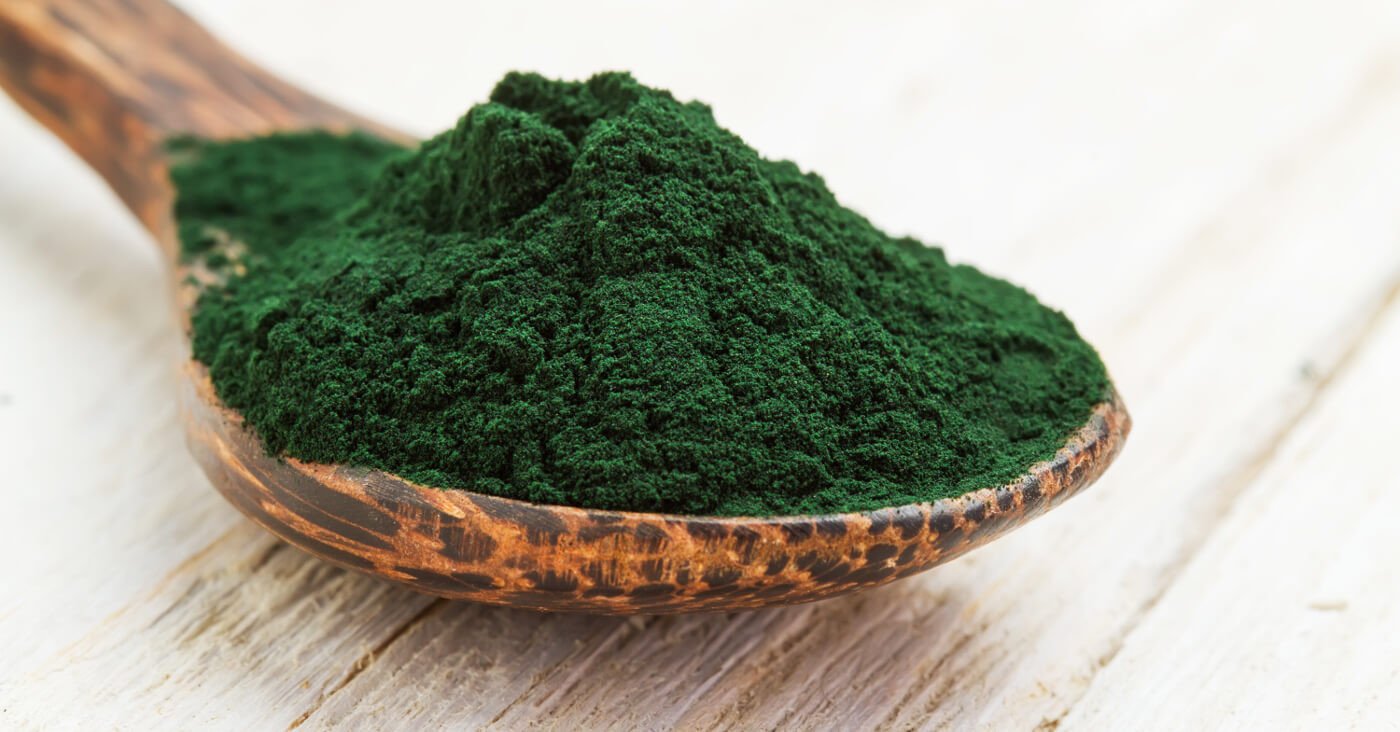Spirulina is a cyanobacterium or blue-green algae, a large and diverse group of simple, plant-like organisms found in salt water and some large freshwater lakes.
Spirulina is a super food source favored by the ancient Aztecs. Nutrient dense, it provides higher levels of key antioxidants, enzymes, vitamins and minerals than 5 servings of fruits and vegetables.
Spirulina contains nearly 60% protein making it a great candidate as a meat-alternative, complete protein source. It is also said to be one of the only plant sources to contain B-12, a vital vitamin that most vegetarians and vegans lack in their diets.
Apart from the fact that Spirulina has more antioxidants than blueberries (280%), more Iron than spinach (5,500%) and more vitamin A than carrots (3,100%) why would you want to take it? There have been several studies published recently which provide clinically documented benefits of Spirulina.
So what are the health benefits of Spirulina?
Blood Sugar Control
We all need consistent stable energy to function effectively. With a growing population of Diabetics and Pre-diabetics, keeping blood sugar balanced is vital. Fluctuating blood sugar levels can lead to serious short term problems such as hypoglycemia, hyperglycemia, or diabetic ketoacidosis.
In the long term, uncontrolled blood sugar can also damage the vessels that supply blood to important organs, like the heart, kidneys, eyes, and nerves, even when you feel well.
The Journal of Medicinal Food completed a small two-month controlled study of 25 people and found that spirulina helped maintain blood sugar already within normal limits. [1]
Cardiovascular Health
 Cholesterol has become a negative word but your body needs some cholesterol to function, however, it’s also possible to have too much of a good thing. Optimum heart health requires we strike a balance between HDL (“good”) and LDL (“bad”) cholesterol. Another blood lipid called triglycerides can also have a major impact on cardiovascular health.
Cholesterol has become a negative word but your body needs some cholesterol to function, however, it’s also possible to have too much of a good thing. Optimum heart health requires we strike a balance between HDL (“good”) and LDL (“bad”) cholesterol. Another blood lipid called triglycerides can also have a major impact on cardiovascular health.
Three studies of adults and children found spirulina helped maintain total cholesterol, LDL cholesterol, and triglycerides which were already within normal limits, while improving the HDL to LDL balance. One study additionally demonstrated that spirulina helped maintain blood pressure which was already within the normal range. [2],[3],[4]
Mental and Physical Fatigue
Ohio State University scientists recruited 17 healthy men, testing the hypothesis in a randomized, double blinded, placebo controlled study. After 1 week, a 3 g/day dose of spirulina produced a small, but statistically significant increase in exercise output (Kcals consumed in 30 min exercise on a cross trainer machine).
A mathematical based mental fatigue test showed improved performance when tested 4 hours after the first supplementation as well as 8 weeks later. Similarly, a subjective survey for a sense of physical fatigue showed improvement within 4 hours of the first supplementation as well as 8 weeks later. These results show that spirulina intake can affect fatigue in men. [5]
Immune Health
Your immune system is the watchdog of your body, taking action against anything which can cause harm. Your body uses white blood cells, known as natural killer (NK) cells, to form a key part of your immune system’s first line of defense.
Scientists from UC Davis conducted a 12-week study of senior citizens. It was found that spirulina supplementation increased white blood cell counts. [6] A smaller placebo-controlled study found a 40 percent increase in NK cell activity after people took spirulina for just one week. [7]
Written by: Laine Dakin-Salomonson
Sources
[1] Parikh, Panam et al. “Role of Spirulina in the Control of Glycemia and Lipidemia in Type 2 Diabetes Mellitus.” Journal of medicinal food vol. 4,4 (2001): 193-199. doi:10.1089/10966200152744463
[2] Torres-Duran, Patricia V et al. “Antihyperlipemic and antihypertensive effects of Spirulina maxima in an open sample of Mexican population: a preliminary report.” Lipids in health and disease vol. 6 33. 26 Nov. 2007, doi:10.1186/1476-511X-6-33
[3] Samuels, R et al. “Hypocholesterolemic effect of spirulina in patients with hyperlipidemic nephrotic syndrome.” Journal of medicinal food vol. 5,2 (2002): 91-6. doi:10.1089/109662002760178177
[4] Parikh, Panam et al. “Role of Spirulina in the Control of Glycemia and Lipidemia in Type 2 Diabetes Mellitus.” Journal of medicinal food vol. 4,4 (2001): 193-199. doi:10.1089/10966200152744463
[5] Johnson, Morgan et al. “A randomized, double blind, placebo controlled study of spirulina supplementation on indices of mental and physical fatigue in men.” International journal of food sciences and nutrition vol. 67,2 (2016): 203-6. doi:10.3109/09637486.2016.1144719
[6] Selmi, Carlo et al. “The effects of Spirulina on anemia and immune function in senior citizens.” Cellular & molecular immunology vol. 8,3 (2011): 248-54. doi:10.1038/cmi.2010.76
[7] Nielsen, Claus Henrik et al. “Enhancement of natural killer cell activity in healthy subjects by Immulina®, a Spirulina extract enriched for Braun-type lipoproteins.” Planta medica vol. 76,16 (2010): 1802-8. doi:10.1055/s-0030-1250043

